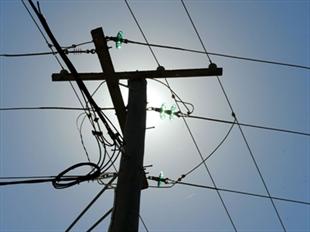
Welcome
David Burns is an environmental chemist with expertise in laboratory data audits, green chemistry, and industrial ecology. David is available to help business & professionals integrate sustainable supply chains and energy efficiency into service offerings. The following blog topics are intended to invoke awareness and/ or action in Going-Green. You are also invited to create a Free Whoisgreen business profile using the link above. David Burns is a NSC member of the Rocky Mountain Institute.

NSW electricity prices are expected to increase by up to 42% by 2013, depending upon retailer and region. Are you ready and do you know how to minimise your electricity bills?
Recommendation: request quotes from AGL, Energy Australia, Origin Energy (electricity and gas).
Higher electricity prices are inevitable as the Australian population spreads across our wide nation. Aging supply infrastructure and political trends in Europe and America towards clean and renewable power generation also suggest higher electricity prices. Expect even higher electricity prices beyond 2013. There are ONLY two ways to manage electricity bills in the face of higher electricity prices.
BEST WAY to manage electricity prices: use less electricity - adopt energy efficiency & change behaviour. Look for the most energy stars on home appliances, measure business electricity consumption, switch to offpeak by using programmable timers and delay start functions, and avoid unnecessary stand-by and vampire energy.
REGULATION to manage electricity prices: utilities reward business and households in future with discounts that control consumption below energy efficient targets. Utilities apply surcharges in future for every kilowatt of energy consummed that exceeds an energy efficient target.
David Burns is a Sustainability Advisor and Analyst, www.sustain450.com.au
If you have a friend that you would like to share this with, then










I agree, the most responsible way to manage rising electricity costs is to use less power by turning off unnecessary appliances, replace old inefficient products, and balancing efficient consumption with renewable supply such as house rooftop solar (water & electricity).